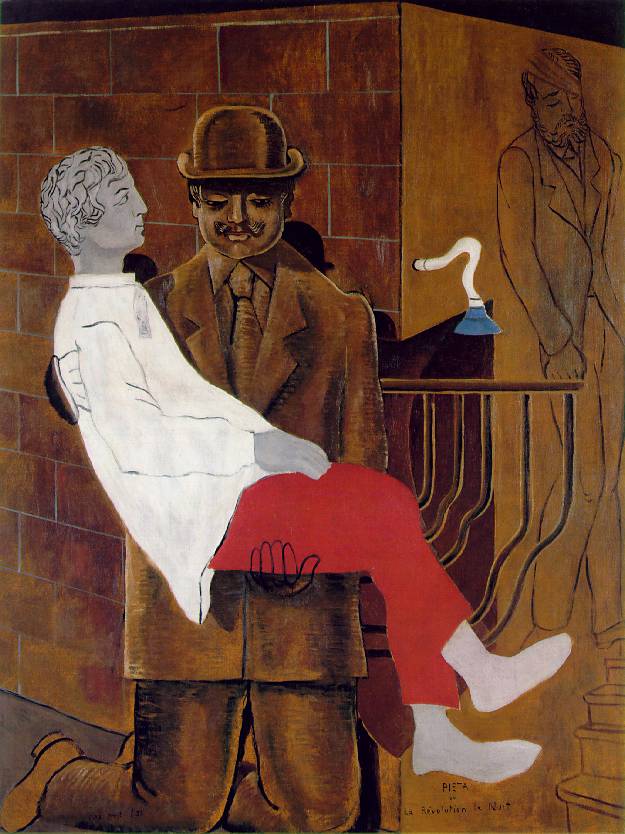Happy Father’s Day – Max Ernst, “Pieta” or “Revolution by Night”
Happy Father’s Day! There is some irony in posting about Max Ernst’s portrait of his father in “Pieta” or “Revolution by Night” (1923). For one thing, Ernst thought his father was an idiot. Take it as you will, this definitive work of early surrealism can be interpreted on many levels.

Max Ernst – “Pieta” or “Revolution by Night” (1923) Oil on canvas, 116 x 89 cm Tate Gallery, London
Max Ernst (was) the son of an amateur painter from Cologne who once painted Max in the character of the infant Jesus. …The figure carried by the bowler-hatted man is generally accepted to be a self- portrait; it has Ernst’s features. The bowler-hatted man appears to be a portrait of Ernst’s moustachioed father. … Ernst thought of his father as a fool. The man with the turned-up moustache was not just a Sunday painter, but one with a heavy academic style; Ernst’s entire career was a rejection of the middle-class idea of art for which his father stood.
…In dreams, we are unmanned; that is the burden of Ernst’s painting. The Pieta in Renaissance art is an image of maternal love. In Ernst’s painting, the father becomes a mother. The son, instead of raging against him in the Oedipal drama familiar to Ernst as a student of Freud, becomes as passive as a corpse. The father (is also) passive, an automaton. …The revolution here is not one fought across barricades, but a dreamy one in which barricades disintegrate, (and) the boundaries of identity dissolve…
– Jonathan Jones, The Guardian


